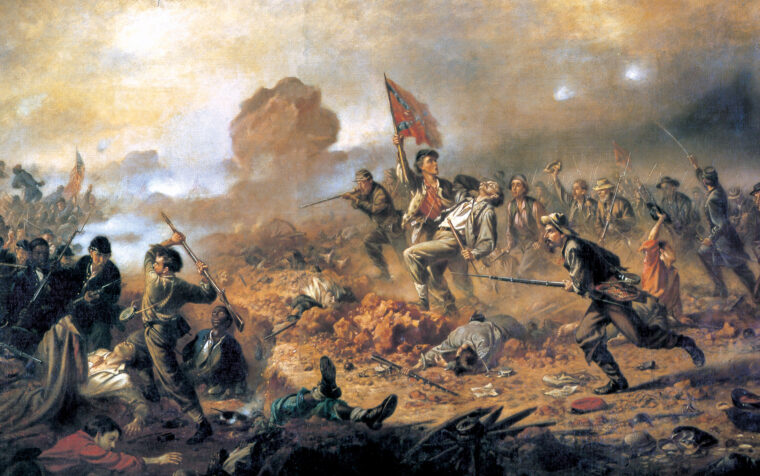
Richmond
Bushrod Johnson: Yankee Quaker, Confederate General
By Roy Morris Jr.Of all the unlikely heroes of the Civil War, none was more unlikely than Bushrod Johnson, Ohio-born Quaker turned Confederate general. Read more

Richmond
Of all the unlikely heroes of the Civil War, none was more unlikely than Bushrod Johnson, Ohio-born Quaker turned Confederate general. Read more
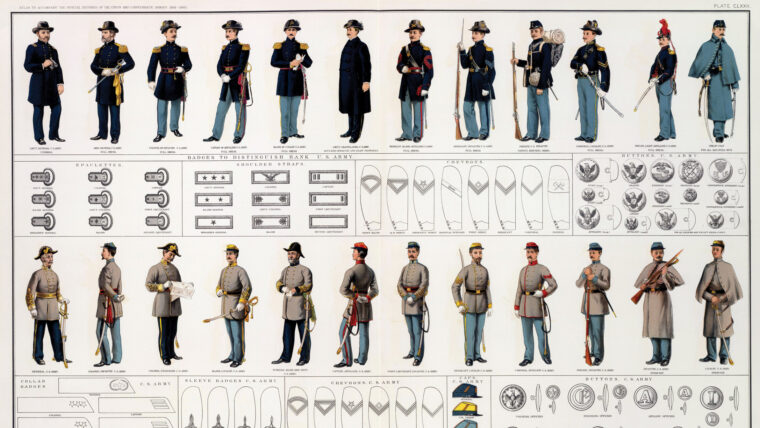
Richmond
The title of the 128-book, 138,579-page work was a suitably large mouthful: The War of the Rebellion: A Compilation of the Official Records of the Union and Confederate Armies. Read more
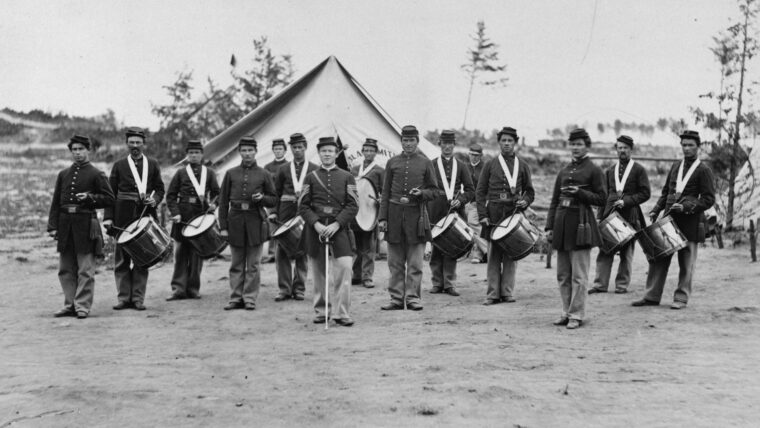
Richmond
Winter was the calmest period for Civil War soldiers. Knowing that there was no combat immediately looming on the horizon allowed the soldiers to relax and recuperate in ways they had not been able to enjoy beafore. Read more
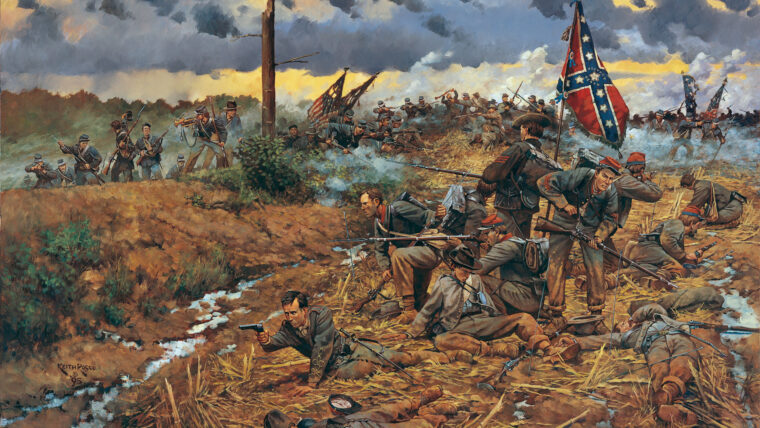
Richmond
Four hundred Confederate sailors and marines, their small arms loaded and ready, awaited their orders. Some men had their cutlasses within easy reach. Read more
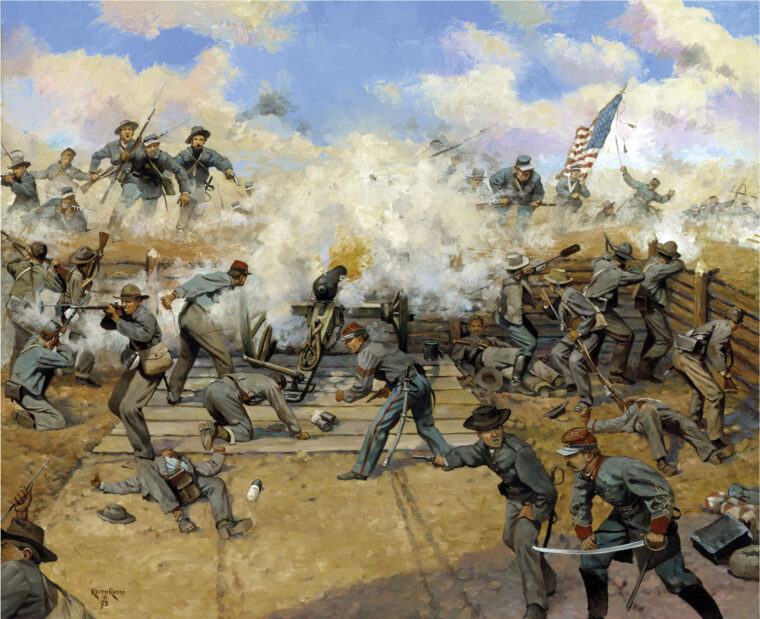
Richmond
Lieutenant Colonel Horace Porter, personal aide to Lt. Gen. Ulysses S. Grant, maneuvered his mount past ammunition wagons, ambulances, stragglers, and prisoners jamming the muddy roads leading back to headquarters from Five Forks, Virginia, on the evening of April 1, 1865. Read more
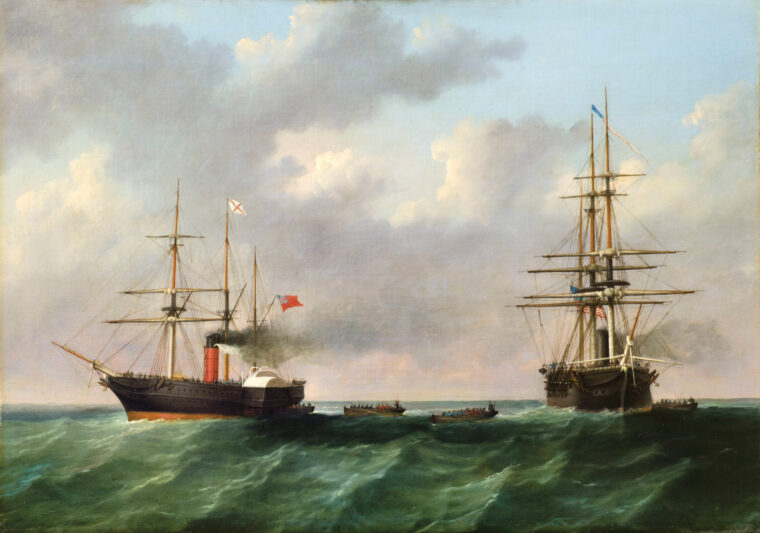
Richmond
In November 1861, word swept through London that an American warship, James Adger, in port at Southampton, was planning to put to sea and intercept a British ship bringing Confederate emissaries to Europe. Read more
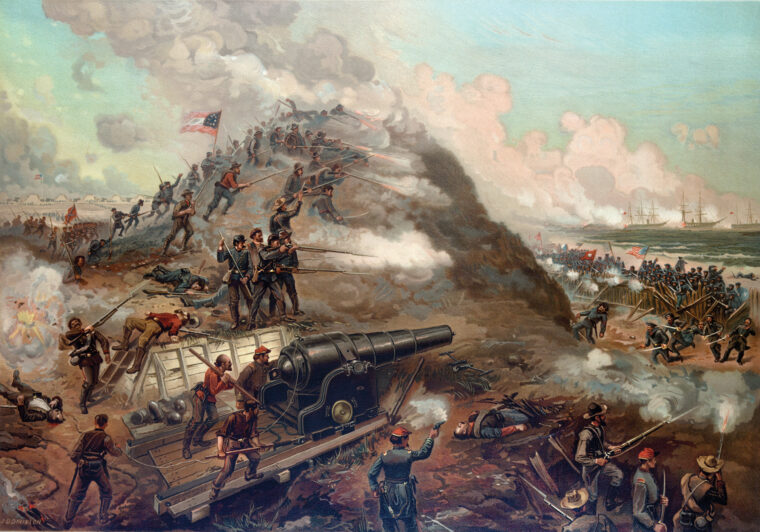
Richmond
The prospect of running the Federal blockade at Wilmington was easy in the beginning. North Carolina’s principal seaport was blockaded by a single warship, USS Daylight, and no one took the threat seriously. Read more
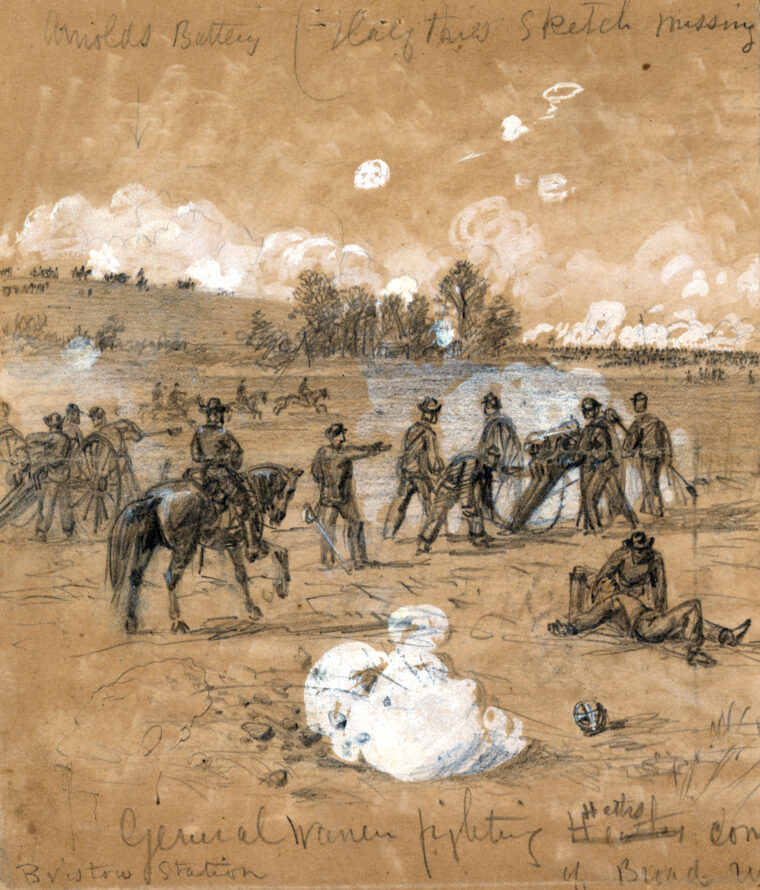
Richmond
In late July 1863, after the conclusion of the Gettysburg campaign, the Union Army of the Potomac, under Maj. Read more
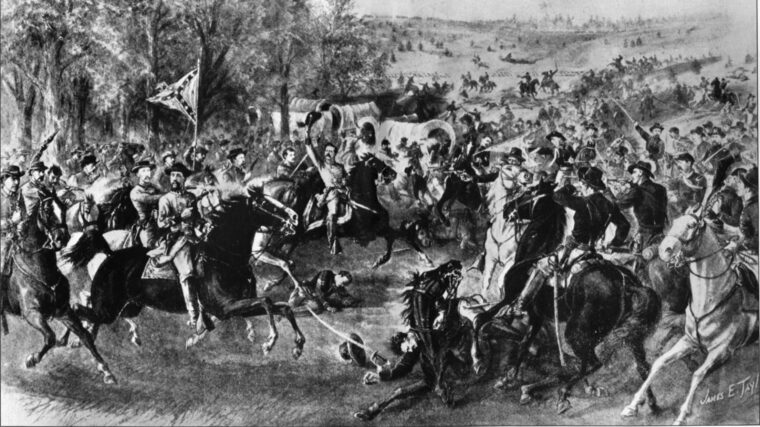
Richmond
Despite costing the Union Army 55,000 men in five weeks of hard marching and grueling combat, Lt. Gen. Read more
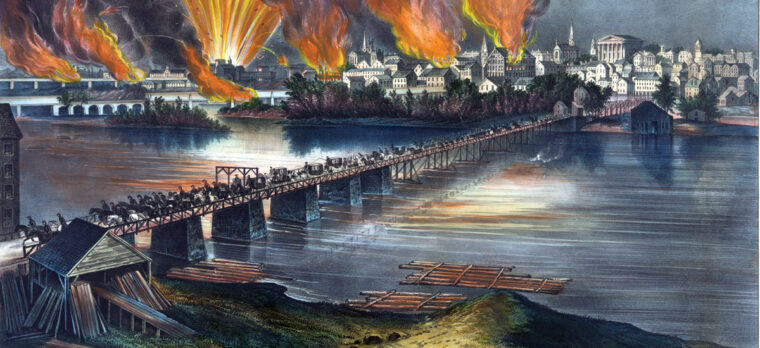
Richmond
When the end came, on April 2, 1865, Confederate President Jefferson Davis was sitting in his customary pew at St. Read more
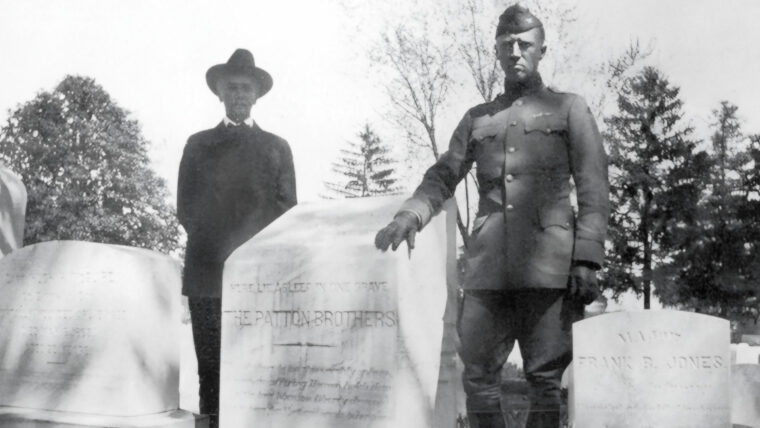
Richmond
The famed general of World War II, George S. Patton III, often spoke with pride of the military deeds of his forefathers. Read more
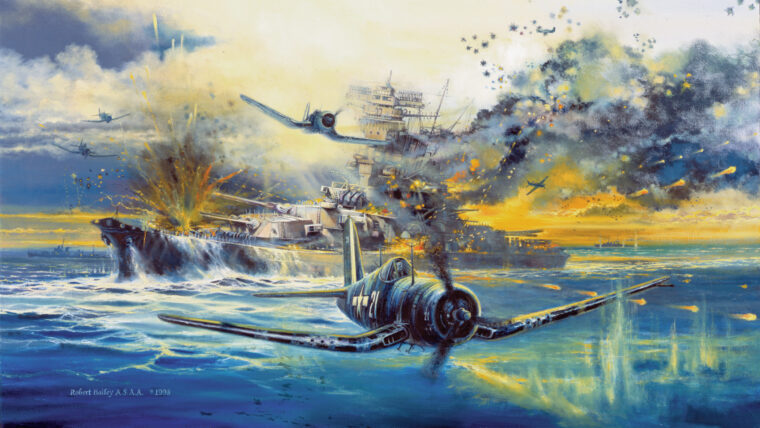
Richmond
In the late afternoon of April 6, 1945, five days after American GIs and leathernecks scrambled onto an Okinawa beach a scant 500 miles from Japan, two U.S. Read more
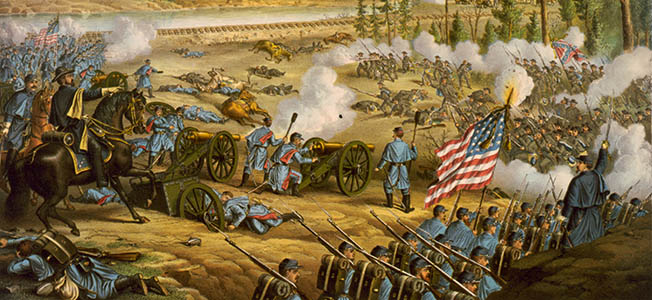
Richmond
Confederate offensives into two border states, Maryland and Kentucky, formed the key highlights of the second half of 1862 for the Confederacy. Read more
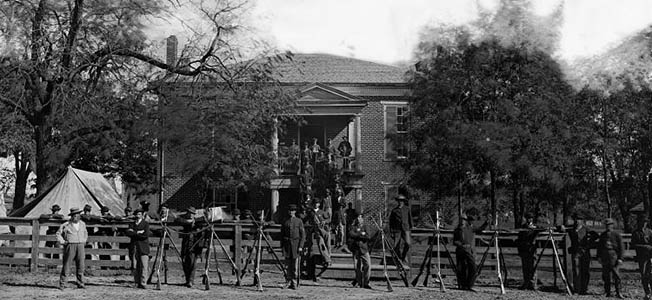
Richmond
When Confederate General Robert E. Lee learned on the morning of April 9, 1865, that Union infantry was both in front and behind of his meager army of 12,500 effectives as it approached Appomattox Court House in central Virginia, he resigned himself to the sad task before him. Read more
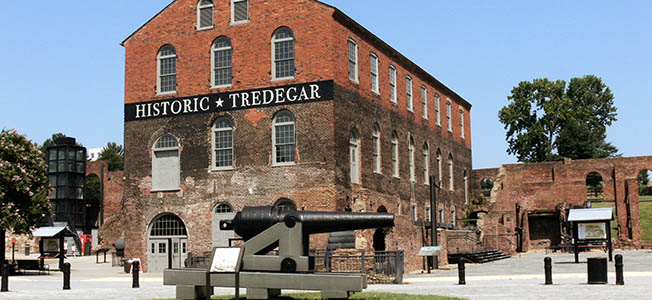
Richmond
Dawn on July 1, 1862, ushered in a hot summer day. After having assumed the offensive five days earlier, General Robert E. Read more
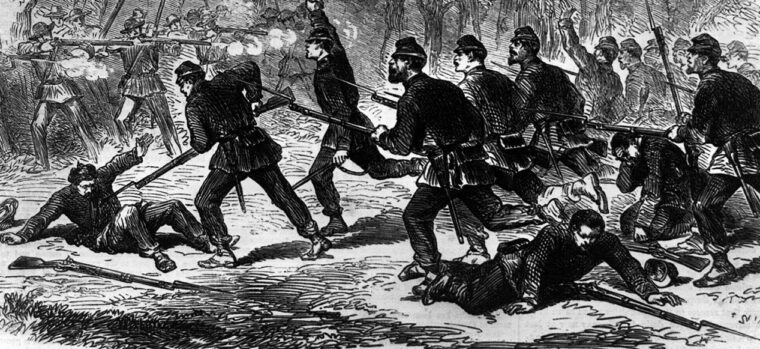
Richmond
The gray-clad Virginia infantry marched quickly through the woods. In the distance they could hear the familiar rattle of musketry signaling an encounter with the enemy. Read more
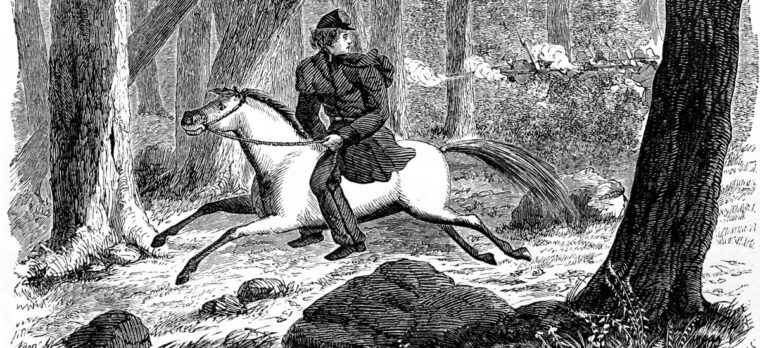
Richmond
On a warm morning in July 1861, the Union Army marched forth with bands playing and regimental flags flying. Read more
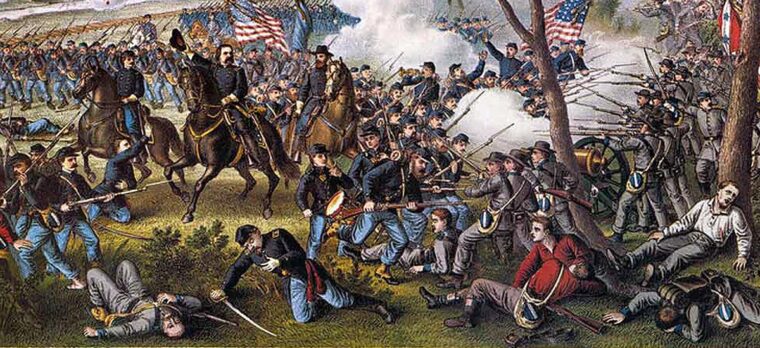
Richmond
The Battle of Champion’s Hill was a pivotal event in the American Civil War. Ulysses S. Grant would pursue the retreating Confederate army to an area 20 miles east of Vicksburg, bringing about the Siege of Vicksburg and the Confederates’ surrender. Read more
Richmond
General George McClellan was a key figure in the prosecution of the American Civil War, particularly during 1862, when he led the Union Army of the Potomac during the Peninsula Campaign, a failed offensive to capture the Confederate capital of Richmond in the spring, and the Battle of Antietam, the bloodiest single day in American history, on September 17, 1862. Read more
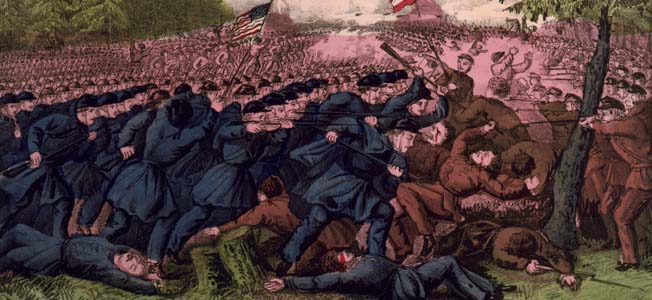
Richmond
In 1862, Confederate forces in Virginia were enjoying a number of campaign successes, but the decisive advantage in naval power enjoyed by the Union enabled it to advance down the Mississippi, capture river forts, and conduct many coastal attacks. Read more